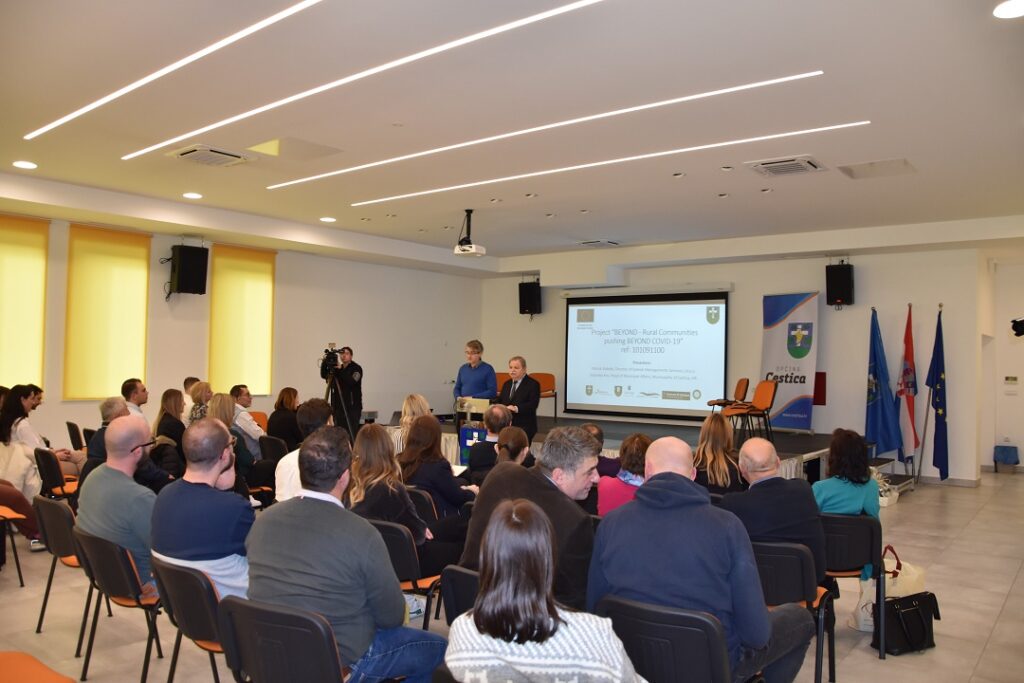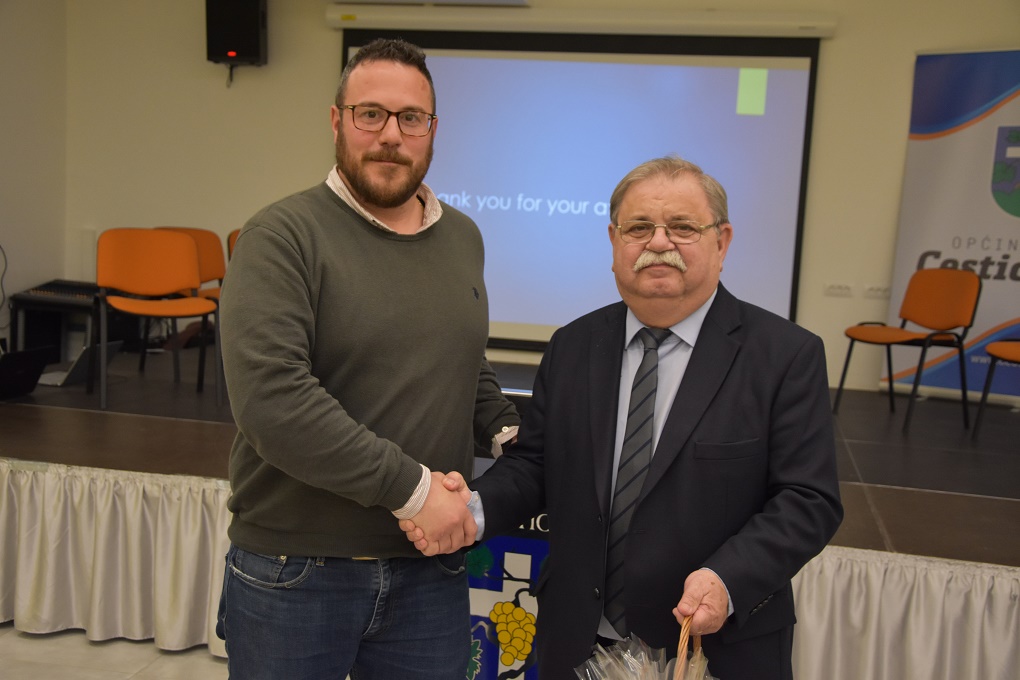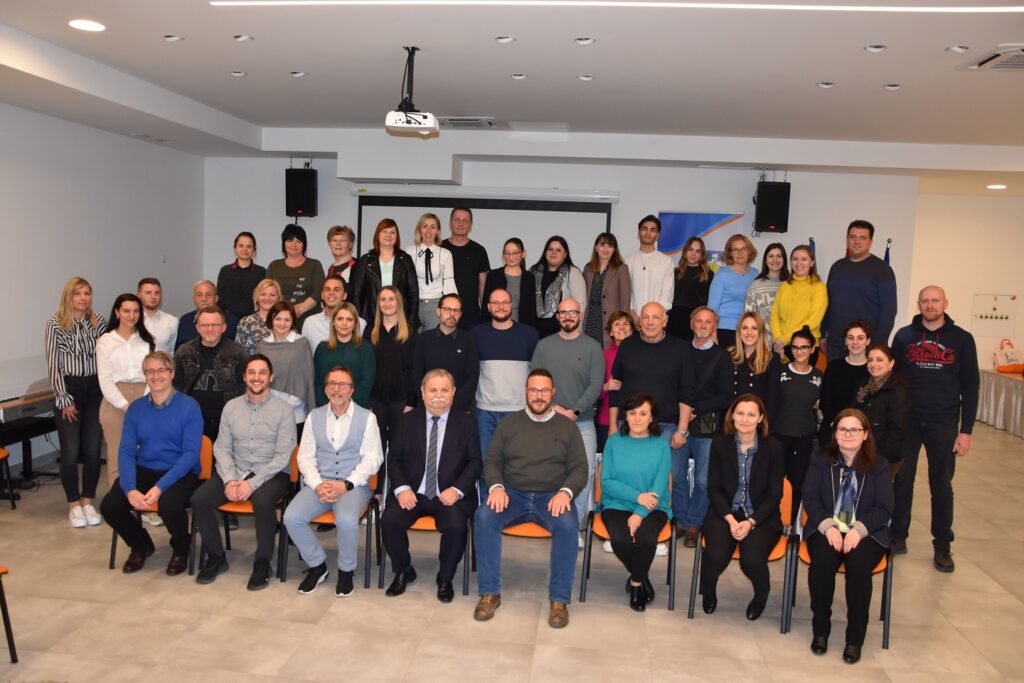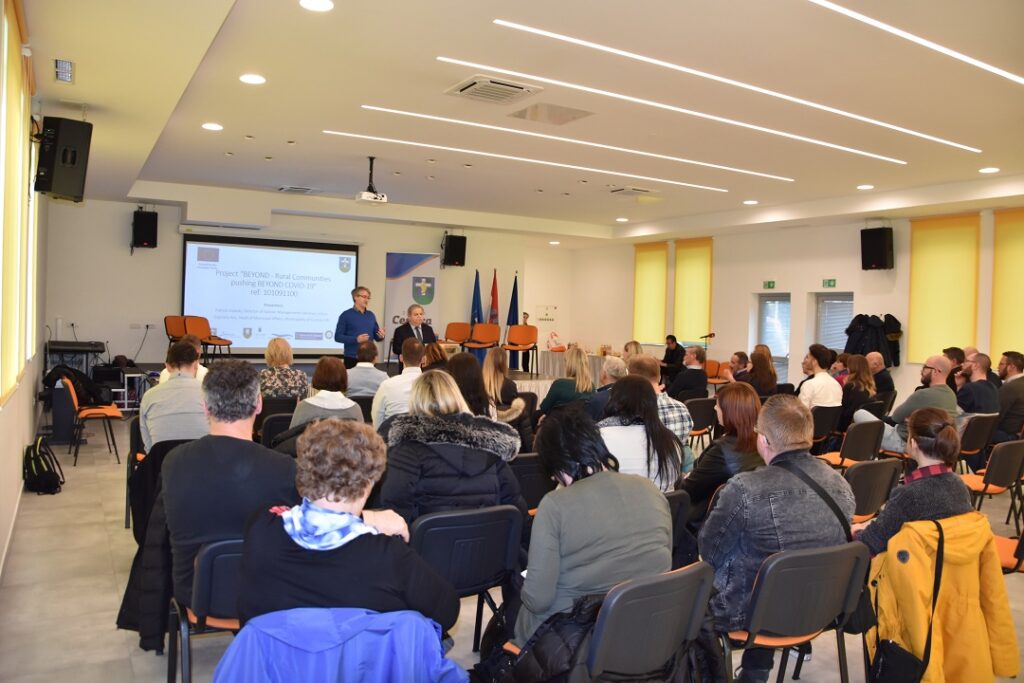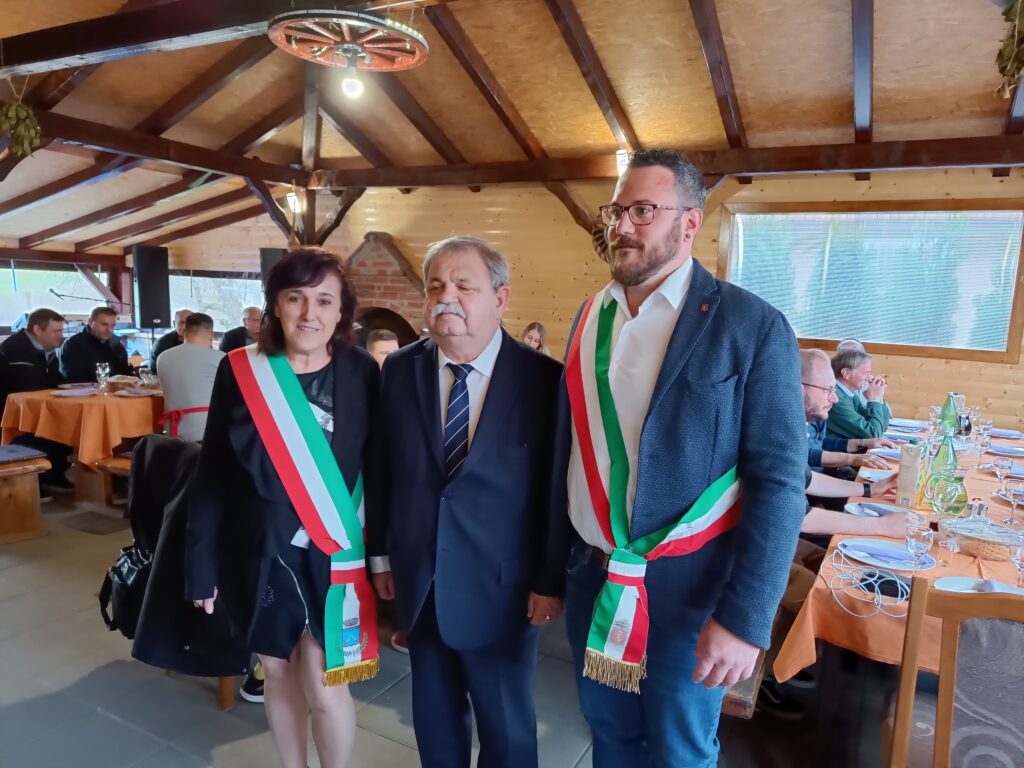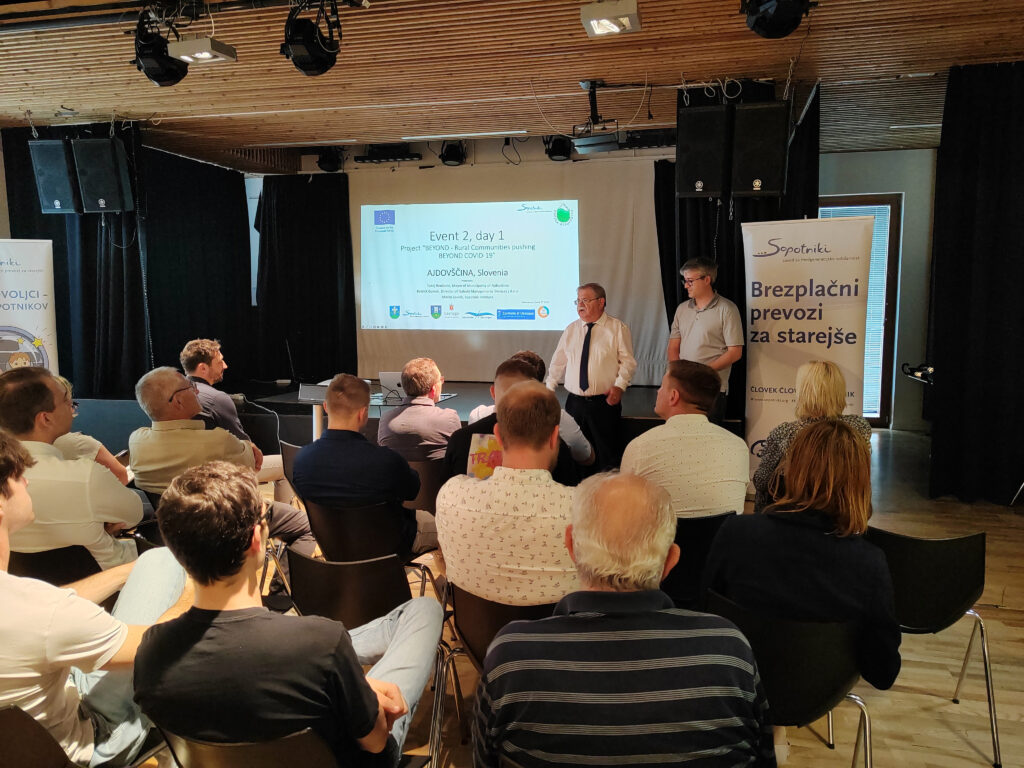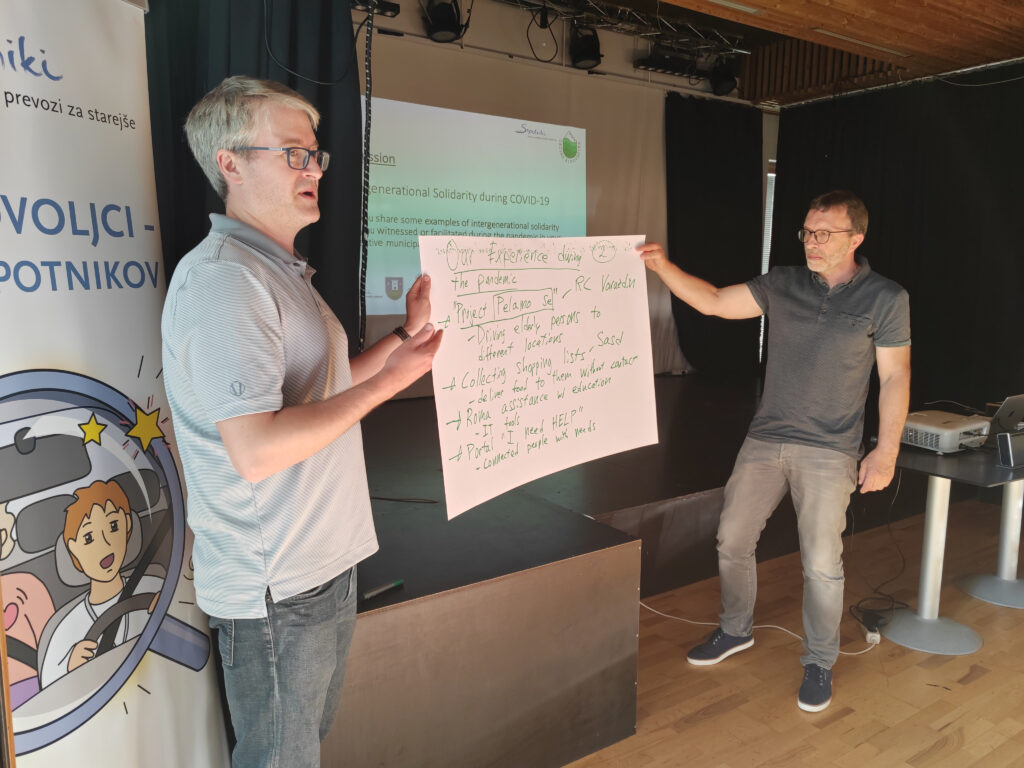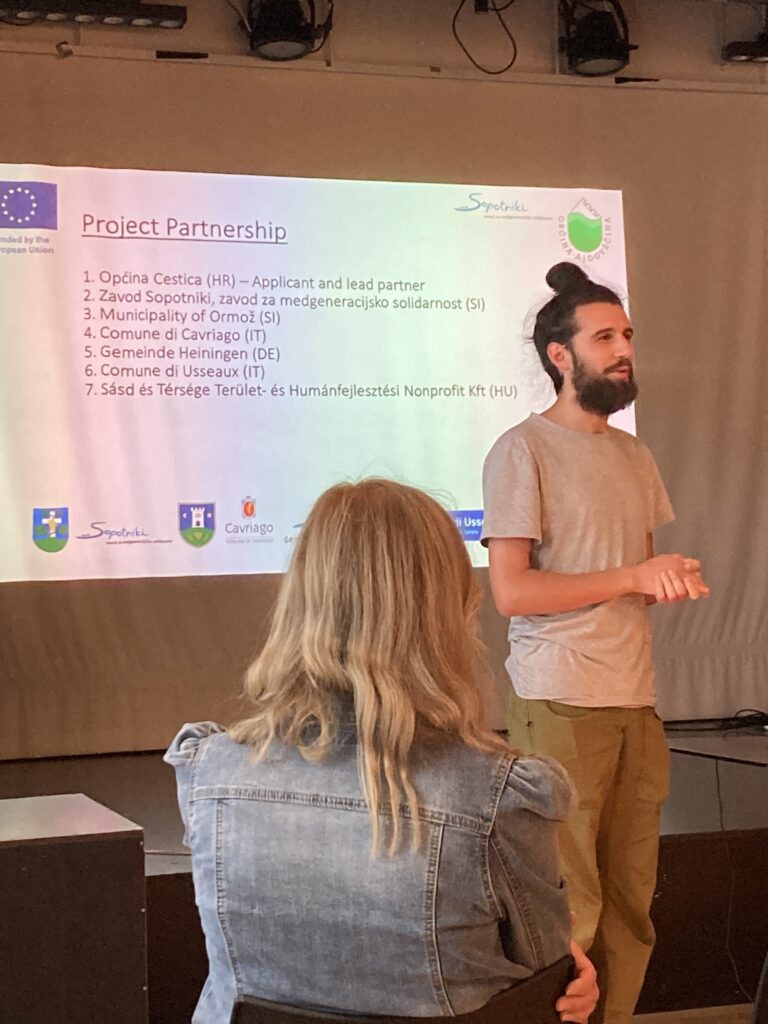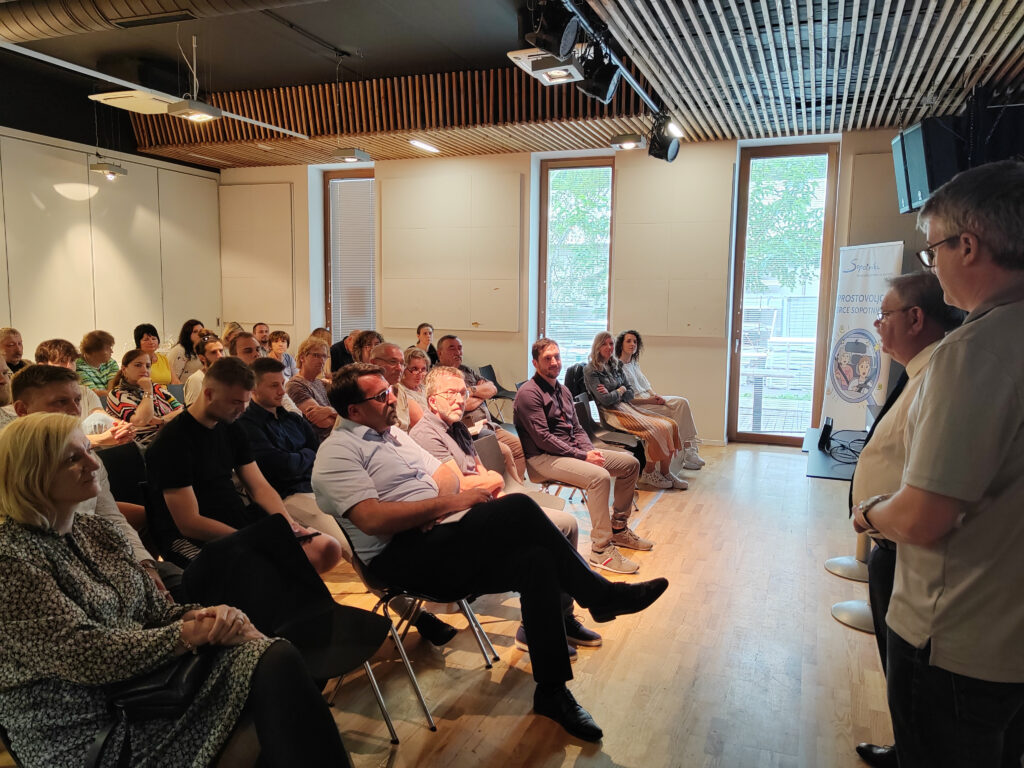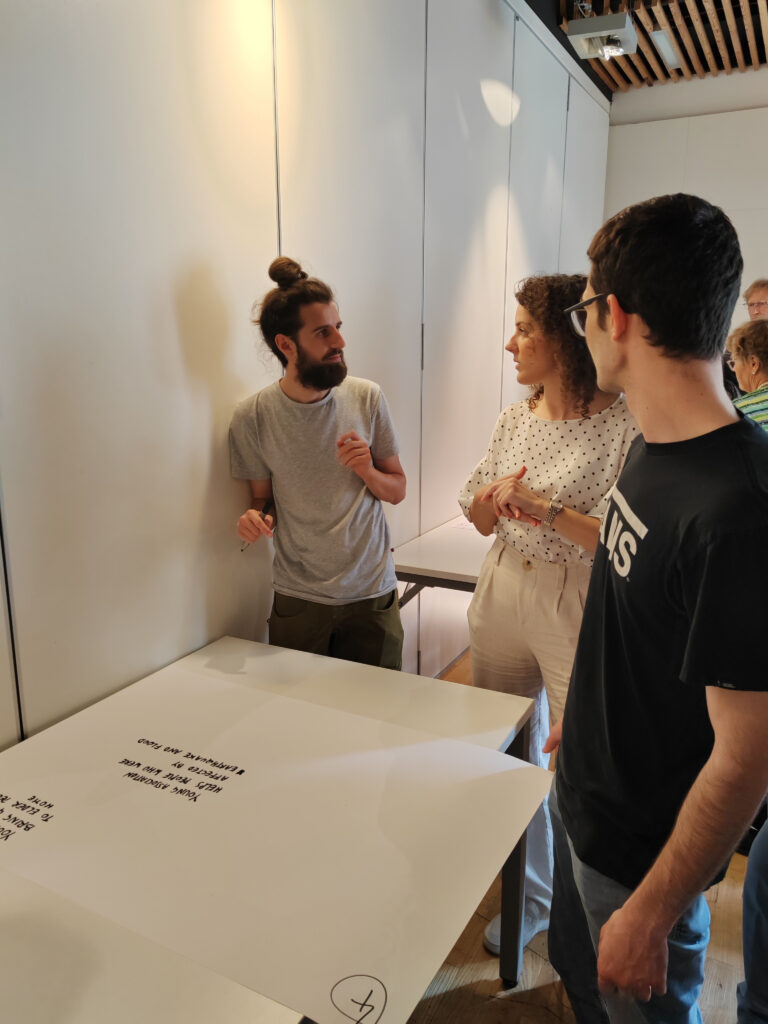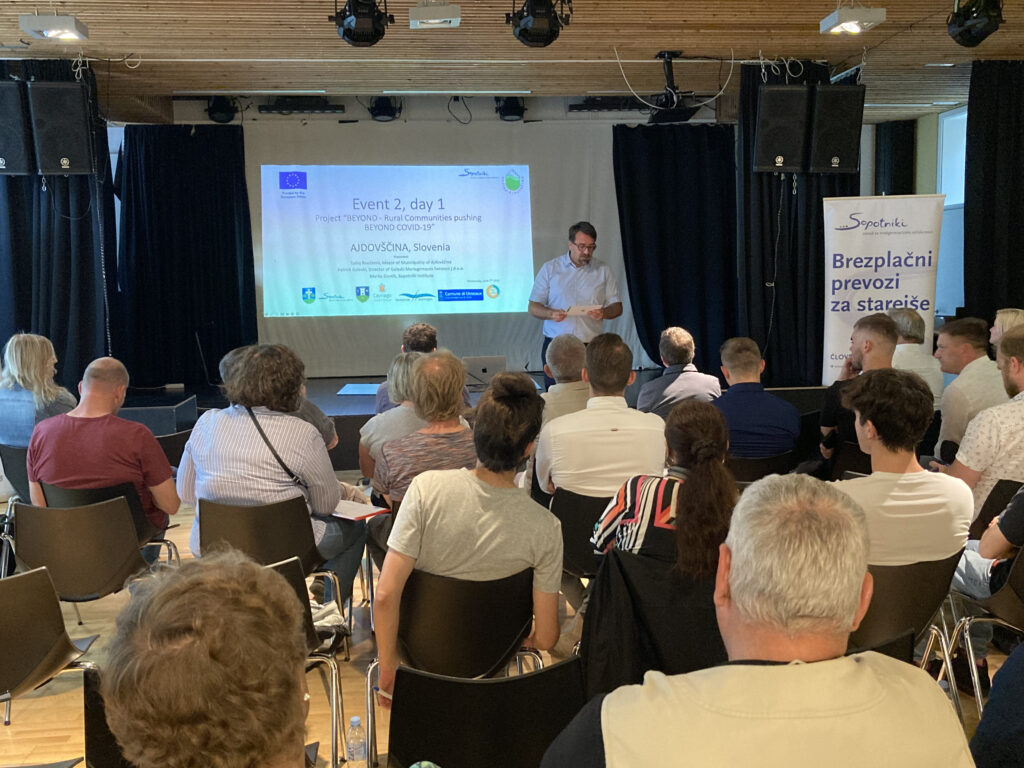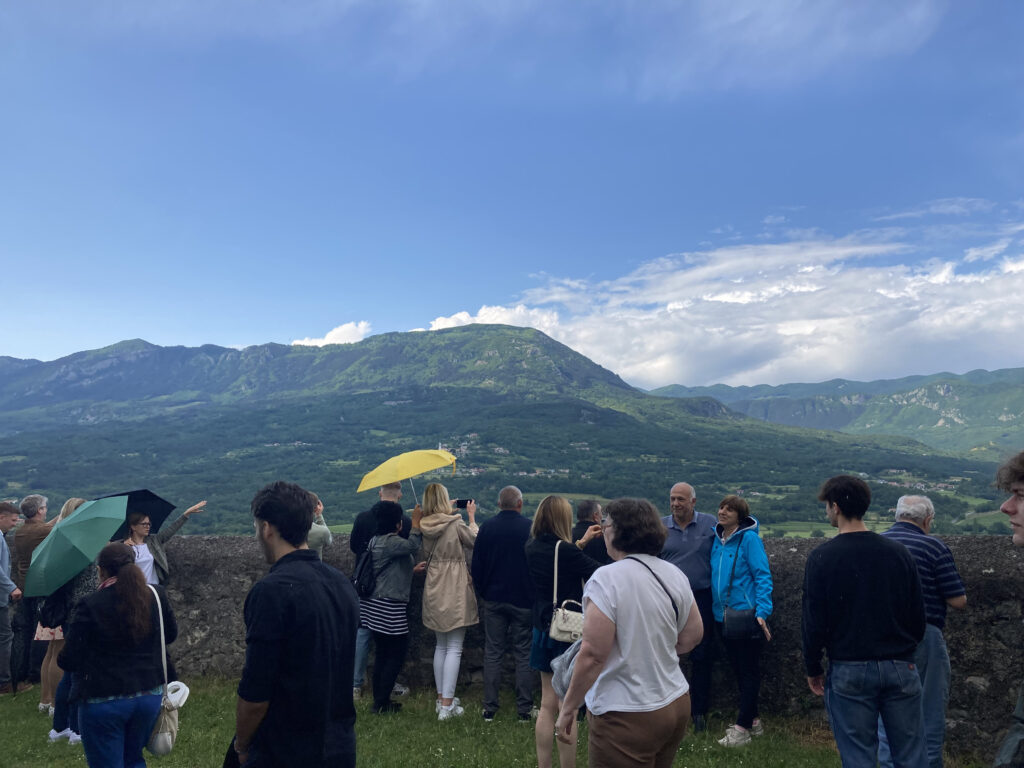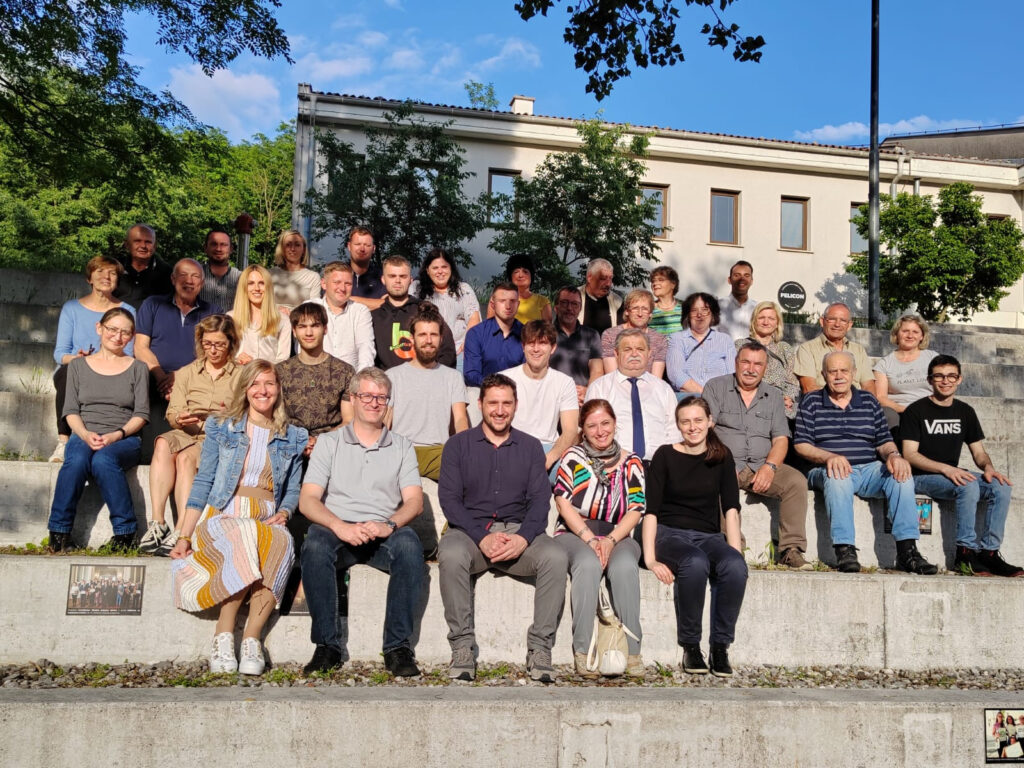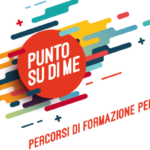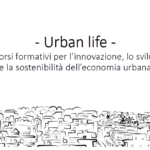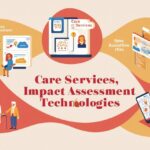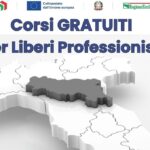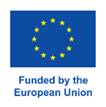
EUROPEAN EDUCATION AND CULTURE EXECUTIVE AGENCY (EACEA)
EACEA.B – Creativity, Citizens, EU values and Joint operations
B.3 – Citizens and EU Values
Bando “CERV-2022-CITIZENS-TOWN”
Titolo progetto: Rural Communities pushing BEYOND COVID-19
Acronimo: “Beyond”
Informazioni di base
- Project number: 101091100
- Project name: Rural Communities pushing BEYOND COVID-19
- Project acronym: BEYOND
- Bando: CERV-2022-CITIZENS-TOWN
- Tematica: CERV-2022-CITIZENS-TOWN-NT
- Azione: CERV Lump Sum Grants
- Ente finanziatore: European Education and Culture Executive Agency
Questo progetto coinvolge le comunità rurali di 5 Paesi dell’UE (HR, SI, IT, DE, HU), il partenariato è rappresentato da 5 comuni e 2 organizzazioni non profit.
Tutti i 7 partner hanno affrontato sfide importanti durante la pandemia COVID-19, ed ora, lavorando insieme, mirano a migliorare l’impegno dei cittadini nelle azioni della società civile e nei processi democratici, con particolare attenzione alle comunità rurali. Promuovere la cittadinanza attiva e il volontariato in questi tempi di pandemia è stato complicato. Le azioni condotte dalle ONG e dagli enti pubblici hanno dovuto essere costantemente reinventate, il che ha reso più difficile per le fasce più vulnerabili (anziani, persone con disabilità e rifugiati) l’accesso ai servizi pubblici e la partecipazione ai processi democratici.
Il progetto è organizzato in 7 eventi di 3 giorni (in HR, SI, IT, DE, HU). Ogni evento include la condivisione di buone pratiche che mostrano come i cittadini possono impegnarsi come volontari in azioni che affrontano questioni locali (protezione civile, solidarietà, tutela dell’ambiente, inclusione sociale, istruzione, cultura e salute mentale). Le attività sono concepite in modo che i partner possano raccogliere le opinioni dei cittadini sull’Europa che desiderano. Il progetto darà evidenza del funzionamento della solidarietà e delle modalità attraverso le quali l’Agenda 2021-27 sostiene le aree rurali nella fase post COVID-19 (e in eventuali nuove criticità). Laboratori, presentazioni, visite in loco, lavori di gruppo e dimostrazioni incoraggeranno il volontariato e miglioreranno la comprensione di come l’impegno dei cittadini nelle azioni locali nell’UE contribuisca alla crescita sostenibile. Si stima che il progetto riesca a coinvolgere ed informare in tutto 350.000 cittadini (come partecipanti indiretti, mentre si prevedono 590 partecipanti diretti.) su come possono contribuire ad attività di volontariato nelle azioni locali post-COVID. Un’accordo di cooperazione tra i partner definirà le priorità e le azioni a lungo termine da condividere ed attuare. Grazie al progetto i cittadini miglioreranno la consapevolezza del funzionamento delle politiche e dei valori dell’UE e permetteranno il consolidamento di una nuova cooperazione tra le aree rurali dell’UE.
Partenariato
- Coordinatore di progetto:
OPCINA CESTICA (CESTICA), PIC 932470022, established in DRAVSKA 1A, CESTICA 42208,
Croatia,
Partner di progetto:
- ZAVOD SOPOTNIKI, ZAVOD ZAMEDGENERACIJSKO SOLIDARNOST (Sopotniki), PIC 904286963, established in KRASKA ULICA 2, SEZANA 6210, Slovenia,
- OBCINA ORMOZ (Ormoz), PIC 911144087, established in PTUJSKA CESTA 6, ORMOZ 2270, Slovenia,
- COMUNE DI CAVRIAGO (Cavriago), PIC 898424477, established in PIAZZA DON G DOSSETTI 1, CAVRIAGO 42025, Italy,
- GEMEINDE HEININGEN (Heiningen), PIC 931880456, established in HAUPTSTRASSE 30, HEININGEN 73092, Germany,
- COMUNE DI USSEAUX (Usseaux), PIC 886937737, established in VIA CONTE EUGENIO BRUNETTA, 53, USSEAUX 10060, Italy,
- SASD ES TERSEGE TERULET- ES HUMANFEJLESZTESI NONPROFIT KORLATOLT FELELOSSEGU TARSASAG (Sasd), PIC 935913328, established in RAKOCZI FERENC UT 41, SASD 7370, Hungary,
Attività e risultati attesi:
Le attività saranno organizzate in 7 eventi (ogni evento durerà 2-3 giorni), uno organizzato da ogni partner. Ogni evento sarà adattato alle esigenze locali e dei partecipanti; tuttavia, ogni evento seguirà un formato simile. Le attività per evento potranno eventualmente comprendere:
– Attività dimostrative: Queste attività saranno utilizzate per promuovere la partecipazione dei cittadini alle attività. Il tipo di dimostrazione può essere, ad esempio, un esercizio di simulazione per la pulizia delle aree colpite;
– Workshop: I partecipanti provenienti dalle regioni partner impareranno a conoscere le politiche e i programmi dell’UE in materia di occupazione, cultura, inclusione sociale, ecc. e a capire come l’UE contribuisca all’inclusione sociale e al miglioramento della qualità della vita;
– presentazioni di buone prassi e discussioni: all’inizio dell’evento, ogni organizzazione presenterà i propri progetti, attività e obiettivi, discuterà di come sono stati raggiunti e come i valori dell’UE (ad esempio il volontariato) hanno contribuito ad aumentare l’efficacia delle loro attività.
– Eventi culturali (concerti e fiere): gli eventi culturali saranno organizzati congiuntamente per aiutare i partner a familiarizzare e a collaborare su questioni di interesse, in modo che i partecipanti possano vedere come le risorse rurali possono essere utilizzate per costruire l’identità e il senso di appartenenza di una comunità. Sono previste anche presentazioni per informare i partecipanti sull’impatto economico di questi eventi (ad esempio in termini di attrazione turistica, aumento delle entrate per le piccole imprese, sensibilizzazione ambientale, ecc.)
– Visite studio: durante gli eventi, ai partecipanti verranno mostrati alcuni luoghi e contesti nei quali il volontariato e la cittadinanza attiva hanno influito sulla qualità della vita.
– Riunioni per lo sviluppo del progetto: i partner lavoreranno insieme per sviluppare progetti che saranno utilizzati per affrontare i problemi della comunità. Ogni incontro si concentrerà sullo sviluppo di contenuti in aree specifiche (ad esempio cultura, agricoltura, istruzione, inclusione sociale, ecc.)
| Work Package No | Work Package name | Lead Beneficiary |
| WP1 | The kick-off event in Cestica, Varazdin County, Croatia | 1 – CESTICA |
| WP2 | Event 2 in the Municipality of Ajdovščina, Slovenia | 2 – Sopotniki |
| WP3 | Event 3 in the Municipality of Heiningen, Germany | 5 – Heiningen |
| WP4 | Event 4 in the Municipality of Cavriago, IT | 4 – Cavriago |
| WP5 | Event 5 in the Municipality of Usseaux, IT | 6 – Usseaux |
| WP6 | Event 6 in the Municipality of Sasd, HU | 7 – Sasd |
| WP7 | Event 7/Final event in the Municipality of Ormož, SI | 3 – Ormoz |
Evento 1 – Evento inaugurale / kick off meeting a Cestica, Regione di Varaždin, Croatia
Il primo evento, Kick off meeting, si è svolto durante tre giorni (da mercoledì 29 a venerdì 31 marzo 2023) a Cestica e Varaždin, nella contea di Varaždin, in Croazia. Tutte le attività dell’evento si sono svolte in loco.
Il primo giorno, il Comune di Cestica ha organizzato la conferenza di apertura del progetto presso la sala comunale di Cestica. Lo scopo della conferenza era quello di presentare il progetto ai cittadini e spiegare come esso contribuisca a migliorare l’impegno dei cittadini nella società civile. Dopo la presentazione di apertura, i rappresentanti dei partner hanno illustrato brevemente le azioni attuate in materia di protezione civile e volontariato durante la pandemia. Questo formato ha permesso ai partecipanti di scambiare know-how e di sottolineare come hanno adattato le loro attività durante la pandemia COVID-19 (evidenziando come i valori dell’UE, come la solidarietà, sono stati incorporati nelle azioni e fornendo raccomandazioni sulle lezioni apprese). Come mezzo per coinvolgere i partecipanti e scoprire le loro esigenze riguardo al volontariato nelle loro comunità, la conferenza ha incluso un quiz interattivo con i partecipanti (via Slido) sugli impatti del volontariato durante la pandemia. I risultati hanno mostrato che la maggior parte dei partecipanti ritiene che stiamo superando la pandemia e che le comunità rurali si sono avvicinate a una piena ripresa (76% degli intervistati); i partecipanti hanno anche indicato un’opinione positiva sui valori dell’UE (76%). Per quanto riguarda la pandemia, il 21% dei partecipanti ha considerato le vaccinazioni come la soluzione principale per porre fine alla COVID-19, mentre il 72% degli intervistati ritiene che una combinazione di azioni (vaccini, azioni di volontari, misure di sicurezza, sussidi diretti ai cittadini) abbia portato le comunità rurali a porre fine al tributo della pandemia sulle comunità rurali. Per riprendersi completamente dall’impatto della pandemia, i partecipanti ritengono che le comunità rurali debbano incoraggiare maggiormente il volontariato, promuovere l’inclusione sociale e collaborare maggiormente con le altre comunità dell’UE. Attraverso la sessione di domande e risposte alla fine della conferenza di apertura, i partecipanti hanno potuto acquisire nuove informazioni e conoscenze su come le comunità rurali hanno adattato le misure di protezione civile, coinvolto i cittadini e si sono adattate per superare la pandemia.
Il secondo giorno (giovedì 30 marzo 2023) si è tenuto presso la Sala Comunale di Cestica. Per coinvolgere i partecipanti e incoraggiare lo scambio di know-how, è stato organizzato un workshop interattivo incentrato sulle modalità con cui gli organismi di protezione civile hanno fornito supporto ai cittadini durante la COVID-19. La prima parte del workshop ha incluso presentazioni sulle migliori pratiche di protezione civile durante la pandemia. In totale si sono tenute 4 presentazioni.
Il terzo giorno (venerdì 31 marzo 2023) si è tenuto un incontro di progetto a Varazdin, presso il Palazzo della Contea di Varazdin. L’incontro ha avuto lo scopo di descrivere i risultati dell’evento e di discutere le prossime fasi di attuazione del progetto. I rappresentanti dei media erano presenti per coprire il progetto. Durante l’incontro, i rappresentanti del progetto hanno rilasciato dichiarazioni ai giornalisti sul progetto e sui risultati attesi. Inoltre, è stato organizzato un breve tour della città di Varazdin per far conoscere ai partecipanti il patrimonio culturale della città e della contea di Varaždin.
Materiali dell’evento (in lingua inglese)
Program of the event ; presentations from the event:
- Municipality of Cestica; ESS project “Wish” (representative: Marina Dukarić, project manager)
- Society of the Red Cross of Varaždin: (Lecturer: Red Cross Varaždin: Activities and measures organized and implemented by the Red Cross in the countryside during the pandemic (Lecturer: Filipa Blažon Šumečki, Ph.D., EU project manager and general affairs manager)
- Home for the elderly/Home “Novi Život” (Lecturers: Iva Roža and Valentina Kocet Martinec)
- “Hiperaktivni” Association : (Representatives: Tomislav Milec and Matija Hrman): Activities of the organization and its operation during the COVID 19 pandemic; (Representatives: Tomislav Milec and Matija Hrman)
- Varaždin County Fire Brigade ; Firefighting activities in Cestica (Lecturer: Dakro Majhen)
- A group activity and presentation comparing COVID-19 to the Spanish flu pandemic of 1918-20;
Event description sheet (in English only) Summary of participant feedback and responses
Evento n°2 – Ajdovščina, Slovenia
L’evento si è svolto lungo tre giorni (da mercoledì 7 a venerdì 9 giugno 2023) ad Ajdovščina, in Slovenia. Tutte le attività dell’evento si sono svolte in loco. Le attività sono state organizzate in modo da raggiungere i seguenti obiettivi:
– aumentare la consapevolezza di come la solidarietà intergenerazionale costruisca un senso di appartenenza alla comunità e di come le attività di volontariato vadano a beneficio dell’intera collettività
– riflettere sull’impatto della pandemia COVID-19 sulle generazioni più anziane e più giovani
– mostrare come la solidarietà tra cittadini contribuisca a rafforzare le misure locali.
Primo giorno:
Durante il primo giorno dell’evento si sono svolti la cerimonia di apertura, il questionario interattivo e le attività di gruppo (sessioni di breakout). Il giorno di apertura dell’evento è stato caratterizzato da un discorso introduttivo del sindaco del Comune di Ajdovščina, Tadej Beočanin, che ha sottolineato gli sforzi del Comune per promuovere il coinvolgimento dei cittadini nella formazione delle politiche locali. Il sindaco ha sottolineato l’importanza di promuovere non solo lo sviluppo economico, ma anche il miglioramento della qualità della vita dei cittadini in settori vitali come l’istruzione, lo sport, l’assistenza agli anziani e il sostegno ad altri gruppi sociali vulnerabili. L’evento è stato ulteriormente arricchito dalla presenza del sindaco del comune di Cestica, Mirko Korotaj, che ha anche condiviso spunti ed esperienze del suo comune e ha tracciato alcuni parallelismi tra quanto accaduto durante il Covid-19 e gli attuali problemi di alluvioni e frane.
Dopo le parole di apertura dei sindaci, Patrick Galeski (rappresentante di Cestica) ha presentato i risultati dell’evento 1 del progetto. È seguita una breve presentazione dei partner del progetto, che hanno illustrato le loro attività e sintetizzato le principali lezioni apprese dal loro lavoro durante la pandemia COVID-19.
Nell’attività successiva, i partecipanti hanno risposto a un questionario interattivo sui loro smartphone (tramite l’applicazione Mentimeter), che ha ricordato loro i concetti fondamentali di cooperazione intergenerazionale, solidarietà e volontariato. Dopo che i partecipanti hanno completato il questionario, le risposte sono state riviste e discusse per evidenziare l’importanza del volontariato (nel modo giusto). Dopo il quiz, sono seguiti gruppi separati in cui tutti i partecipanti hanno discusso gli argomenti trattati: 1) La solidarietà intergenerazionale durante la COVID-19, 2) Il ruolo delle autorità locali e delle organizzazioni non governative durante la pandemia, 3) Guardare al futuro: I gruppi hanno presentato i loro risultati ed esempi di buone pratiche, contribuendo alla formazione di nuove idee per la promozione a lungo termine della solidarietà intergenerazionale tra partner/partecipanti.
Secondo giorno:
Caratterizzato dalla presenza di un folto gruppo di partecipanti entusiasti, il secondo giorno dell’evento ha proposto una serie di buone pratiche e di collaborazioni con la cittadinanza, in grado di migliorare significativamente la qualità della vita delle comunità rurali.
Il programma della giornata prevedeva una mostra/presentazione dei servizi di trasporto gratuito per gli anziani, un’iniziativa ideata da Zavod Sopotniki. Il direttore dell’istituzione ha illustrato come è iniziata la storia di “Sopotnikov” (cioè Compagni), come funziona il modello di trasporto gratuito e ha evidenziato gli adeguamenti apportati dall’istituzione per poter svolgere le proprie attività durante la pandemia (installazione di barriere in plexiglas, assunzione di personale, consegna di cibo e medicinali, ecc.).
La presentazione è stata seguita da un’attività di gruppo: un esercizio dimostrativo sulle buone e cattive pratiche (“do’s and don’ts”) nel fornire assistenza agli anziani durante la pandemia e nella condivisione delle esperienze.
La seconda presentazione è stata fatta da Zavod Dobra pot sulla piattaforma “The Lore” (https://izrocilo.si), che è stata sviluppata durante le misure Corona, quando non è stato possibile organizzare laboratori e attività dal vivo. Il progetto Lore si basa sulla necessità di preservare il patrimonio delle aree locali di Brkinov e del Carso. Il suo obiettivo è quello di trasferire il valore del patrimonio alle nuove generazioni, di sensibilizzare l’opinione pubblica sull’importanza di preservare il ricco patrimonio naturale e culturale della zona e di dimostrare il potenziale moderno di come il patrimonio possa essere utilizzato per sviluppare l’imprenditorialità in campagna. La terza presentazione è stata dedicata al servizio ToyotaGO di Toyota Adria doo (https://www.toyota-go.si), una moderna soluzione di mobilità progettata appositamente per le aree rurali dove il trasporto pubblico esistente potrebbe non fornire risultati ottimali. Oltre alla presentazione dell’applicazione mobile per la prenotazione del trasporto, la presentazione ha descritto un modello per la pianificazione e il raggruppamento dei trasporti, che mira a ottimizzare i percorsi e a garantire la sostenibilità della soluzione. È stato posto l’accento sui principali gruppi target: giovani (attività extrascolastiche), anziani (accesso ai servizi della città – gratuito per gli utenti dei servizi dell’Istituto Sopotniki).
L’ultima presentazione/attività ha offerto ai partecipanti una comprensione più approfondita dei processi partecipativi utilizzati dal Comune di Ajdovščina, che ha incluso una spiegazione/presentazione di come il bilancio partecipativo dia ai cittadini la possibilità di partecipare al processo decisionale e al finanziamento dei progetti nella loro comunità locale. È stato spiegato come Ajdovščina stanzia i fondi per l’iniziativa, quali sono i passaggi per l’approvazione delle misure locali finanziate con il bilancio partecipativo ed esempi di come il bilancio partecipativo possa essere utilizzato.
La giornata si è conclusa con una visita guidata alla Croce di Vipava e una cena culinaria a Sinji Vrh, che ha permesso ai partecipanti di familiarizzare ancora di più con la cultura e il patrimonio di Ajdovščina. Questo approccio ha anche permesso ai partecipanti di collaborare tra loro, approfondire le relazioni e scambiare conoscenze in un ambiente informale.
Terzo giorno:
Il terzo giorno si è tenuta una riunione di progetto presso la sede del comune di Ajdovščina. Durante l’incontro, i partecipanti hanno fatto una breve valutazione dell’evento. È seguita una panoramica sullo stato attuale del progetto (pianificazione, comunicazione, rendicontazione) e la definizione di una data e di contenuti e attività provvisori per il terzo evento, che si terrà dal 27 al 29 settembre 2023 a Heiningen, in Germania.
Al di fuori della riunione, i partecipanti hanno goduto di visite guidate al pittoresco villaggio di Vipavski Križ e alla vivace città di Ajdovščina, concludendo così in modo indimenticabile la ricca tre giorni. Sopotniki e il Comune di Ajdovščina hanno preparato i comunicati stampa in collaborazione con il partenariato. Questo ha fatto sì che i media ne parlassero e che il pubblico in generale fosse a conoscenza delle migliori pratiche di Sopotnik e Ajdovščina nel campo del sostegno alla popolazione anziana.
Grazie a questo approccio all’organizzazione e all’implementazione dell’evento, i partecipanti hanno imparato a:
- come coinvolgere e mettere in contatto le generazioni più anziane e quelle più giovani (soprattutto in tempi di crisi come quelli del COVID-19);
- conoscere i metodi e le pratiche migliori in termini di protezione del patrimonio locale e di conservazione delle conoscenze e delle esperienze di tutte le generazioni.
I partecipanti hanno anche potuto collaborare e ideare nuove idee progettuali (relative a soluzioni di mobilità per gli anziani e altre persone bisognose).
Maggiori informazioni sull’evento e sul progetto sono disponibili nei seguenti materiali (solo in inglese):
Program of the event ; presentations from the event:
- Presentation – 1st day
- Presentation – 2nd day
- Presentation – Institute Sopotniki
- Exercise – Institute Sopotniki
- Presentation – Zavod Dobra pot
- Presentation – ToyotaGO
- Presentation – Municipality of Ajdovščina
Event description sheetSummary of participant feedback and responses
Disclaimer: progetto finanziato dall’Unione Europea. I punti di vista e le opinioni espresse sono esclusivamente quelli dell’autore o degli autori e non riflettono necessariamente quelli dell’Unione Europea o dell’EACEA. Né l’Unione Europea né l’autorità concedente possono essere ritenute responsabili per esse.
Per maggiori informazioni sul progetto Beyond, si prega di contattare:
Eddy Galeotti
Centro Studio e Lavoro “La Cremeria” srl
Via Guardanavona, 9 – 42025 Cavriago (RE)
Tel: 0522/576911 – Fax 0522/576680
politichecomunitarie@csl-cremeria.it
www.csl-cremeria.it

English version:
This project involves rural communities in 5 EU countries (HR, SI, IT, DE, HU), the partnership is represented by 5 municipalities and 2 non-profit organisations.
All 7 partners faced major challenges during the COVID-19 pandemic, and now, working together, they aim to improve citizen engagement in civil society actions and democratic processes, with a focus on rural communities. Promuovere la cittadinanza attiva e il volontariato in questi tempi di pandemia è stato complicato.
The actions carried out by NGOs and public bodies have had to be constantly reinvented, which has made it more difficult for the most vulnerable groups (the elderly, people with disabilities and refugees) to access public services and participate in democratic processes.
The project is organised in 7 3-day events (in HR, SI, IT, DE, HU).
Each event includes the sharing of good practices showing how citizens can engage as volunteers in actions addressing local issues (civil protection, solidarity, environmental protection, social inclusion, education, culture and mental health). Activities are designed so that partners can collect citizens’ opinions on the Europe they want. The project will provide evidence of how solidarity works and how Agenda 2021-27 supports rural areas in the post-COVID-19 phase (and in any new critical situations). Workshops, presentations, site visits, group work and demonstrations will encourage volunteering and improve understanding of how citizen engagement in local actions in the EU contributes to sustainable growth. The project is estimated to involve and inform a total of 350,000 citizens (as indirect participants, while 590 direct participants are expected.) on how they can contribute to voluntary activities in post-COVID local actions. A cooperation agreement between the partners will define priorities and long-term actions to be shared and implemented. The project will improve citizens’ awareness of the functioning of EU policies and values and enable the consolidation of new cooperation between rural areas in the EU.
Partnership
- Project Coordinator:
OPCINA CESTICA (CESTICA), PIC 932470022, located at DRAVSKA 1A, CESTICA 42208,
Croatia,
Project Partner:
- ZAVOD SOPOTNIKI, ZAVOD ZAMEDGENERACIJSKO SOLIDARNOST (Sopotniki), PIC 904286963, with headquarters at KRASKA ULICA 2, SEZANA 6210, Slovenia
- OBCINA ORMOZ (Ormoz), PIC 911144087, with headquarters at PTUJSKA CESTA 6, ORMOZ 2270, Slovenia
- COMUNE DI CAVRIAGO (Cavriago), PIC 898424477, with headquarters at PIAZZA DON G DOSSETTI 1, CAVRIAGO 42025, Italy
- GEMEINDE HEININGEN (Heiningen), PIC 931880456, with registered office at HAUPTSTRASSE 30, HEININGEN 73092, Germany,
- COMUNE DI USSEAUX (Usseaux), PIC 886937737, with headquarters at VIA CONTE EUGENIO BRUNETTA, 53, USSEAUX 10060, Italy
- SASD ES TERSEGE TERULET- ES HUMANFEJLESZTESI NONPROFIT KORLATOLT FELELELOSSEGU TARSASAG (Sasd), PIC 935913328, with its head office at RAKOCZI FERENC UT 41, SASD 7370, Hungary,
Activities and expected outcomes
Activities will be organised in 7 events (each event will last 2-3 days), one organised by each partner. Each event will be adapted to local and participant needs; however, each event will follow a similar format. Activities per event may possibly include
- Demonstration activities: These activities will be used to promote citizen participation in the activities. The type of demonstration may be, for example, a simulation exercise for cleaning affected areas;
- Workshops: Participants from partner regions will learn about EU policies and programmes in the fields of employment, culture, social inclusion, etc. and how the EU contributes to social inclusion and improved quality of life;
- Good practice presentations and discussions: at the beginning of the event, each organisation will present their projects, activities and objectives, discuss how they were achieved and how EU values (e.g. volunteering) helped to increase the effectiveness of their activities.
- Cultural events (concerts and fairs): cultural events will be jointly organised to help partners familiarise and collaborate on issues of interest, so that participants can see how rural resources can be used to build a community’s identity and sense of belonging. Presentations are also planned to inform participants about the economic impact of these events (e.g. in terms of attracting tourists, increasing revenue for small businesses, raising environmental awareness, etc.).
- Study visits: during the events, participants will be shown some places and contexts where volunteering and active citizenship have influenced the quality of life.
- Project development meetings: partners will work together to develop projects that will be used to address community problems. Each meeting will focus on developing content in specific areas (e.g. culture, agriculture, education, social inclusion, etc.).
Event 1 – Opening event in Cestica, Varaždin County, Croatia
The first event, Kick off meeting, took place over three days (Wednesday 29 to Friday 31 March 2023) in Cestica and Varaždin, Varaždin County, Croatia. All event activities took place on site.
On Day 1, the Municipality of Cestica organized the opening conference for the project at the Municipal Hall of Cestica. The purpose of the conference was to introduce the project to citizens and explain how it contributes to enhancing citizen engagement in civil society. After the opening presentation, the partner representatives presented briefly on they implemented actions relating to civil protection and volunteering during the pandemic. This format allowed participants to exchange know-how and emphasize how they adapted their activities during the COVID-19 pandemic (highlighting how EU values such as solidarity have been incorporated into actions and providing recommendations the lessons-learnt). As a means to engage participants and find out about their needs concerning volunteering in their communities, the conference included an interactive quiz with participants (Via Slido) about the impacts of volunteering during the pandemic. The findings showed that the majority of participants believed that we are moving beyond the pandemic and that rural communities have come close to a full recovery (76% of respondents) and the participants also indicated a positive opinion towards EU values (76%). Regarding the pandemic, 21% participants regarded vaccinations as the main solution to ending COVID-19, while 72% of respondents considered that a combination of actions (vaccines, actions of volunteers, security measures, direct subsidies to citizens) led to rural communities ending the pandemic’s toll on rural communities. In order to fully recover from the impacts of the pandemic, the participants considered that rural communities need to encourage more volunteering, promote social inclusion, and work more with other communities in the EU. Through the Q&A session at the end of the opening conference, participants were able to gain new information and know-ho about how rural communities adjusted civil protection measures, engaged citizens and adapted in order to overcome the pandemic.
Day 2 (Thursday, March 30th, 2023) was held at the Municipal Hall of Cestica. An interactive workshop focusing on how civil protection bodies provided support to citizens during the COVID-19 was organized in order to engage participants and encourage the exchange of know-how. The first part of the workshop included presentations on best practices in civil protection during the pandemic. There were 4 presentations held in total:
- Municipality of Cestica; ESF Project “Zaželi” (Presenter: Marina Dukarić, project manager)
- Dukarić explained that through the project 6 women were trained and employed to provide support services to elderly person in Cestica. It was explained that the activities of the project needed to be adjusted in order to account for the challenging work conditions during the COVID-19 pandemic;
- Red Cross Society of the City of Varaždin: Activities and actions organized and implemented by the Red Cross in rural areas during the pandemic (Presenter: Filipa Blažon Šumečki, EU project manager and general affairs manager)
- Blažon Šumečki presented how the Red Cross incorporates humanitarian/European values in its work and how volunteers and field teams of the Red Cross were able to adjust operations and reach out effectively to persons in need during the pandemic;
- Home for the Elderly/Dom “Novi Život” (Presenters: Iva Roža and Valentina Kocet Martinec)
- Roža and Kocet Martinec described the work of the organization and its mission. After that, they explained the negative impacts that the pandemic had on the health of residents at the home and the mental health of workers. Details were provided on how the staff at the home adjusted their operations and activities in order to ensure that residents could overcome the pandemic;
- Udruga “Hiperaktivni”: The activities of the organization and how they operated during the COVID 19 Pandemic; (Presenters: Tomislav Milec and Matija Hrman)
- Milec and Hrman first described that the association aims to engage youth in the community and encourage them to take action to address various community issues (e.g. mental health and well-being, employment, cultural heritage, etc.), and described the main activities performed annually by the association. The presenters also described how they coordinated with the Red Cross to deliver food and medicine to persons in need during the pandemic.
To end the workshop, Patrick Galeski (from Galeski Management Services j.d.o.o.) held a group activity that takes into account the consequences and impacts of the COVID-19 pandemic. He first presented on how the COVID 19 pandemic mirrors the entire situation faced by citizens during the Influenza Pandemic of 1918-20. This was done in order to show how although many people acted correctly during the pandemic, there are also many that responded poorly. He emphasized that for the most part history repeated in a bad way during the pandemic. To follow-up on that presentation, Galeski conducted a group activity where participants reviewed a scenario about a lack of doctors in a rural community. The participants needed to consider possible solutions and also discussed on how they are addressing similar issues in their communities.
In the afternoon session, the Firefighting department of Cestica, in cooperation with the Varazdin County Firefighting Community, presented their activities and held a short demonstration. Darko Mahjen from the Municipality of Cestica presented on the main activities of the firefighting associations of Cestica (6 firefighting HQs in total) and described how they operated during the COVID-19 pandemic (i.e. included COVID-19 safety measures in their responses). After the presentation, a firefighting demonstration took place at the Municipality which demonstrated how teams cooperate and operate in emergency situations.
On Day 3 (Friday, March 31st 2023) a project meeting was held in Varazdin, at the Varazdin County Palace. The meeting was held in order to describe the outcomes of the project event and discuss the next steps in project implementation. Representatives of the media were present in order to cover the project. At the meeting, the representatives of the project provide statements to reporters about the project and its expected results. In addition to this, a short tour of the city of Varazdin was organized for participants in order to introduce them to the city and Varaždin County’s cultural heritage.
Program of the event ; presentations from the event:
- Municipality of Cestica; ESS project “Wish” (representative: Marina Dukarić, project manager)
- Society of the Red Cross of Varaždin: (Lecturer: Red Cross Varaždin: Activities and measures organized and implemented by the Red Cross in the countryside during the pandemic (Lecturer: Filipa Blažon Šumečki, Ph.D., EU project manager and general affairs manager)
- Home for the elderly/Home “Novi Život” (Lecturers: Iva Roža and Valentina Kocet Martinec)
- “Hiperaktivni” Association : (Representatives: Tomislav Milec and Matija Hrman): Activities of the organization and its operation during the COVID 19 pandemic; (Representatives: Tomislav Milec and Matija Hrman)
- Varaždin County Fire Brigade ; Firefighting activities in Cestica (Lecturer: Dakro Majhen)
- A group activity and presentation comparing COVID-19 to the Spanish flu pandemic of 1918-20;
Event description sheet (in English only) Summary of participant feedback and responses
Event 2 – Ajdovščina, Slovenia
The event took place over three days (from Wednesday, June 7, to Friday, June 9, 2023) in Ajdovščina, Slovenia. All event activities were held on site. The activities were organized in such a way that the following goals were achieved:
- raise awareness of how intergenerational solidarity builds a sense of belonging to the community and how voluntary activities benefit the entire community
- reflection on the impact of the COVID-19 pandemic on older and younger generations
- to show how solidarity between citizens contributes to the strengthening of local measures
Day 1:
The opening ceremony, interactive questionnaire and group activities (breakout sessions) were held on the first day of the event. The opening day of the event was marked by an informative speech by the mayor of the Municipality of Ajdovščina, Tadej Beočanin. He emphasized the diligent efforts of the municipality to promote the involvement of citizens in the formation of local policies. The mayor emphasized the importance of promoting not only economic development, but also promoting the improvement of citizens’ quality of life in vital areas such as education, sports, care for the elderly and support for other vulnerable social groups. The event was further enriched by the mayor of the municipality of Cestica, Mirko Korotaj, who also shared insights and experiences from his municipality and drew some parallels between what happened during Covid-19 and the current problems with floods and landslides.
After the opening words of the mayors, Patrick Galeski (representative of Cestica) presented the results of event 1 of the project. This was followed by a short presentation of the project partners, who presented their activities and summarized the main lessons learned from their work during the COVID-19 pandemic.
In the next activity, the participants answered an interactive questionnaire on their smartphones (via the Mentimeter application), which reminded them of the basic concepts of intergenerational cooperation, solidarity and volunteerism. After the participants completed the questionnaire, the responses were reviewed and discussed to highlight the importance of volunteering (the right way). After the quiz, separate groups followed, in which all participants discussed the topics discussed: 1) Intergenerational solidarity during COVID-19, 2) The role of local authorities and non-governmental organizations during the pandemic, 3) Looking ahead: The groups presented their findings and examples of good practices, which contributes to the formation of new ideas for the long-term promotion of intergenerational solidarity between partners/participants.
Day 2:
Attended by a large group of enthusiastic participants, the second day of the event offered a wealth of knowledge on bottom-up practices and collaborations that can significantly improve the quality of life in rural communities.
The day’s program included an exhibition/presentation of free transport services for the elderly, an initiative designed by Zavod Sopotniki. The director of the institution presented how the story of “Sopotnikov” (i.e. Companions) began, how the model of free transportation works, and highlighted the adjustments made by the institution to be able to carry out its activities during the pandemic (installation of Plexiglas barriers, employment staff, delivery of food and medicine, etc.) During the presentation, the information infrastructure developed by the institution, which enables it to work efficiently and transparently, was also presented in more detail.
The presentation was followed by a group activity: a demonstration exercise on good and bad practices (“do’s and don’ts”) in providing support to the elderly during the pandemic and sharing experiences.
The second presentation was made by Zavod Dobra pot on the platform “The Lore” (https://izrocilo.si), which was developed during the Corona measures, when it was not possible to hold live workshops and activities. The Lore project is based on the need to preserve the heritage of the local areas of Brkinov and Karst. Its goal is to transfer the value of heritage to younger generations, to raise awareness of the importance of preserving the area’s rich natural and cultural heritage, and to demonstrate the modern potential of how heritage can be used to develop entrepreneurship in the countryside. The third presentation was dedicated to the ToyotaGO service of Toyota Adria doo (https://www.toyota-go.si), a modern mobility solution designed specifically for rural areas where existing public transport may not provide optimal results. In addition to the presentation of the mobile application for booking transport, the presentation described a model for planning and grouping transport, which aims to optimize routes and ensure the sustainability of the solution. Emphasis on key target groups was presented: young people (extracurricular activities), seniors (access to services in the city – free of charge for users of the services of the Sopotniki Institute).
The last presentation/activity offered participants a deeper understanding of the participatory processes used by the Municipality of Ajdovščina, which included an explanation/presentation of how participatory budgeting empowers citizens to participate in decision-making and project financing in their local community. It was explained how Ajdovščina allocates funds for the initiative, what are the steps in approving local measures that are financed with participatory budgeting, and examples of projects that are co-financed at the local level with this approach.
The day ended with a guided tour of the Vipava Cross with a culinary dinner at Sinji Vrh, which enabled the participants to become even more familiar with the culture and heritage of Ajdovščina. Such an approach also enabled the participants to cooperate with each other, deepen relationships and exchange knowledge in an informal environment.
Day 3:
On the third day, a project meeting was held at the headquarters of the municipality of Ajdovščina. At the meeting, the participants gave a short assessment of the event. This was followed by an overview of the current status of the project (planning, communication, reporting) and setting a date and tentative content and activities for the third event, which will take place from 27 to 29 September 2023 in Heiningen, Germany.
Outside the meeting, the participants enjoyed guided tours of the picturesque village of Vipavski Križ and the lively town of Ajdovščina, thus providing an unforgettable end to the rich three-day event. Sopotniki and the Municipality of Ajdovščina prepared press releases in cooperation with the partnership. This ensured that the media reported on it and that the general public was aware of the best practices of Sopotnik and Ajdovščina in the field of support for the elderly population.
With this approach to the organization and implementation of the event, the participants learned:
– how to involve and connect older and younger generations (especially in times of crisis such as COVID-19);
– learned about the best methods and practices in terms of protecting local heritage and preserving the knowledge and experience of all generations.
Participants were also able to collaborate and design new project ideas (related to mobility solutions for the elderly and other people in need).
More information about the event and the project is available in the following materials (in English only):
- Program of the event ;
- presentations from the event:
- Event description sheet
- Summary of participant feedback and responses
Disclaimer: Funded by the European Union. Views and opinions expressed are however those of the author(s) only and do not necessarily reflect those of the European Union or the EACEA. Neither the European Union nor the granting authority can be held responsible for them
For more info on the Beyond project please contact:
Eddy Galeotti
Centro Studio e Lavoro “La Cremeria” srl
Via Guardanavona, 9 – 42025 Cavriago (RE)
Tel: 0522/576911 – Fax 0522/576680
politichecomunitarie@csl-cremeria.it
www.csl-cremeria.it


